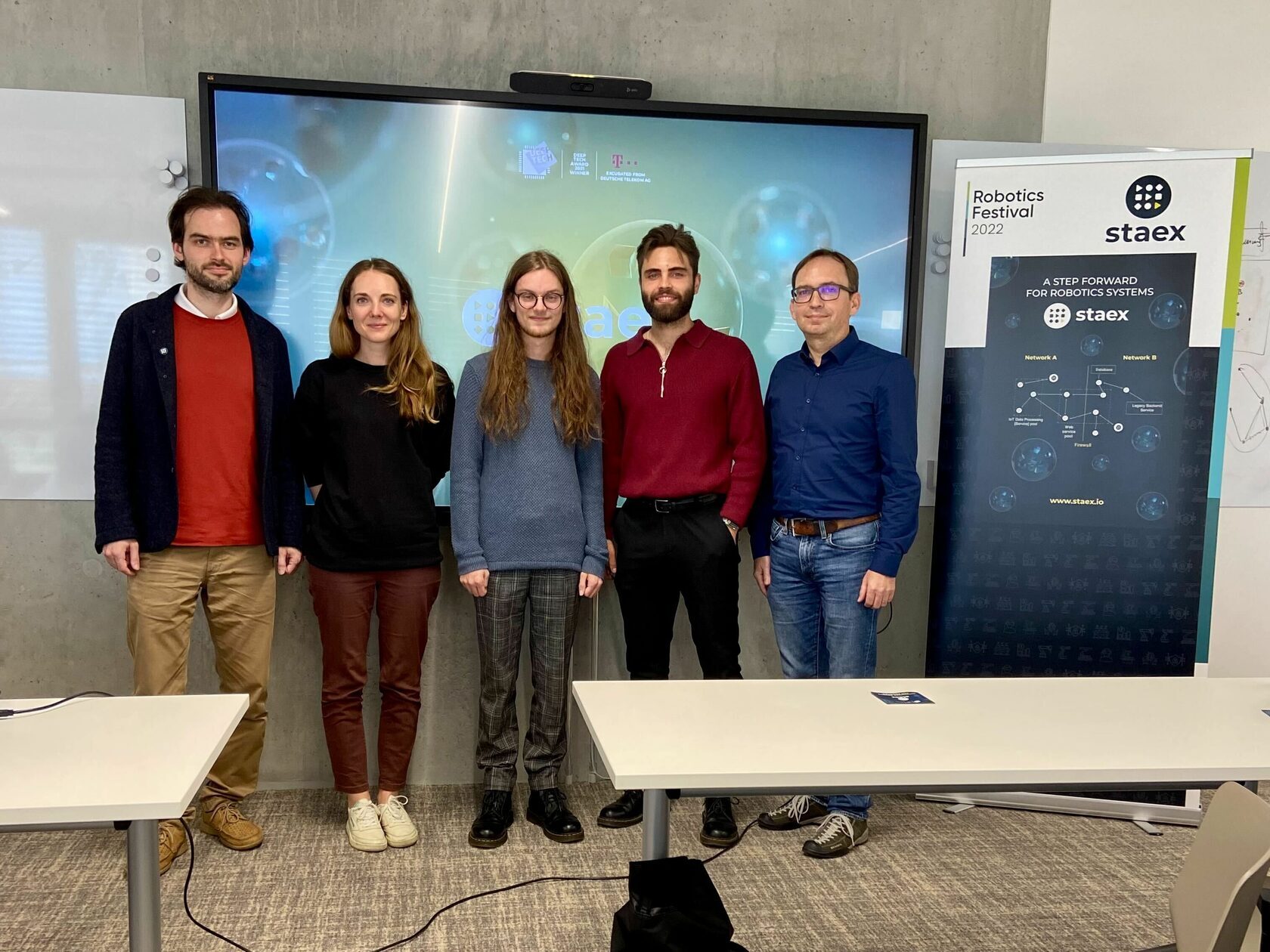Staex and HS Karlsruhe work together on creating decentralized and fault-tolerant applications
2022-11-18
Students from University of Applied Sciences Karlsruhe presented the results of the research project they've conducted using the Staex Networking tool (MCC).

Staex successfully completed a research project with the University of Applied Sciences Karlsruhe, one of the largest and most research-intensive universities of applied sciences in Baden—Württemberg.
The project was led by Prof. Dr. rer. nat. Oliver P. Waldhorst, who represents Computer and Communication Networks at the Faculty of Computer Science and Information Systems and is a manager of the Data Centric Software Systems Research Group at the Institute for Applied Research.
The aim of the project was to create a P2P chat application based on the decentralized MCC network provided by Staex. The main design goal apart from the basic requirements of any chat application, such as message exchange in real time, offline messaging, was decentralization, resulting in resistance to censorship, high availability and robustness (fault tolerance).
Students from Karlsruhe — Kai Siemek, Benjamin Fuertsch — under supervision of Oliver Waldhorst developed a messaging application on top of MCC (Staex Networking component) as part of their semester project. They presented their project to their colleagues and professors at the university on the 26th of October, 2022. The project was well received and spurred discussions on distributed systems, security and privacy.
Staex team also attended the project presentation and gave a short talk about the product and its upcoming features for robotics. Among them is tighter integration with Robot Operating System 2 (ROS 2). Staex will provide global communication from one local area network to another via its own DDS implementation built on top of MCC. This would allow robot manufacturers to pull telemetry data directly from robots and send it to the office computers bypassing gateways and without using complex-to-setup tunnels and VPNs.
Many attendees agreed that robots are not easy to manage in contrast to cloud servers, and blindly using cloud management technologies for robots could lead to even more complexity. Robots have special requirements among which are robust, secure and reliable global connectivity and ability to deploy applications and services in such a dynamic environment. These are the problems that Staex aims to solve and offer the solutions in an easy-to-configure and easy-to-use product.


Staex is a secure public network for IoT devices that can not run a VPN such as smart meters, IP cameras, and EV chargers. Staex encrypts legacy protocols, reduces mobile data usage, and simplifies building networks with complex topologies through its unique multi-hop architecture. Staex is fully zero-trust meaning that no traffic is allowed unless specified by the device owner which makes it more secure than even some private networks. With this, Staex creates an additional separation layer to provide more security for IoT devices on the Internet, also protecting other Internet services from DDoS attacks that are usually executed on millions of IoT machines.
To stay up to date subscribe to our newsletter, follow us on LinkedIn and Twitter for updates and subscribe to our YouTube channel.

See also
Partnership Announcement: Staex and Solana Superteam Germany
2025-02-20
Staex and Solana Superteam Germany Partner to Drive Decentralized Physical Infrastructure Networks (DePIN) in Germany.
Generative Ventures Invests in Staex
2025-01-24
Generative Ventures Invests in Staex to build a Scalable and Resilient Internet for DePIN.
Staex and Germandrones to collaborate on Web3 Drone Corridor project
2024-04-23
This collaboration will leverage the expertise of both organizations to showcase the seamless integration of drone operations and online machine-to-machine payments within the framework of NEXA — Web3 drone corridor project.


